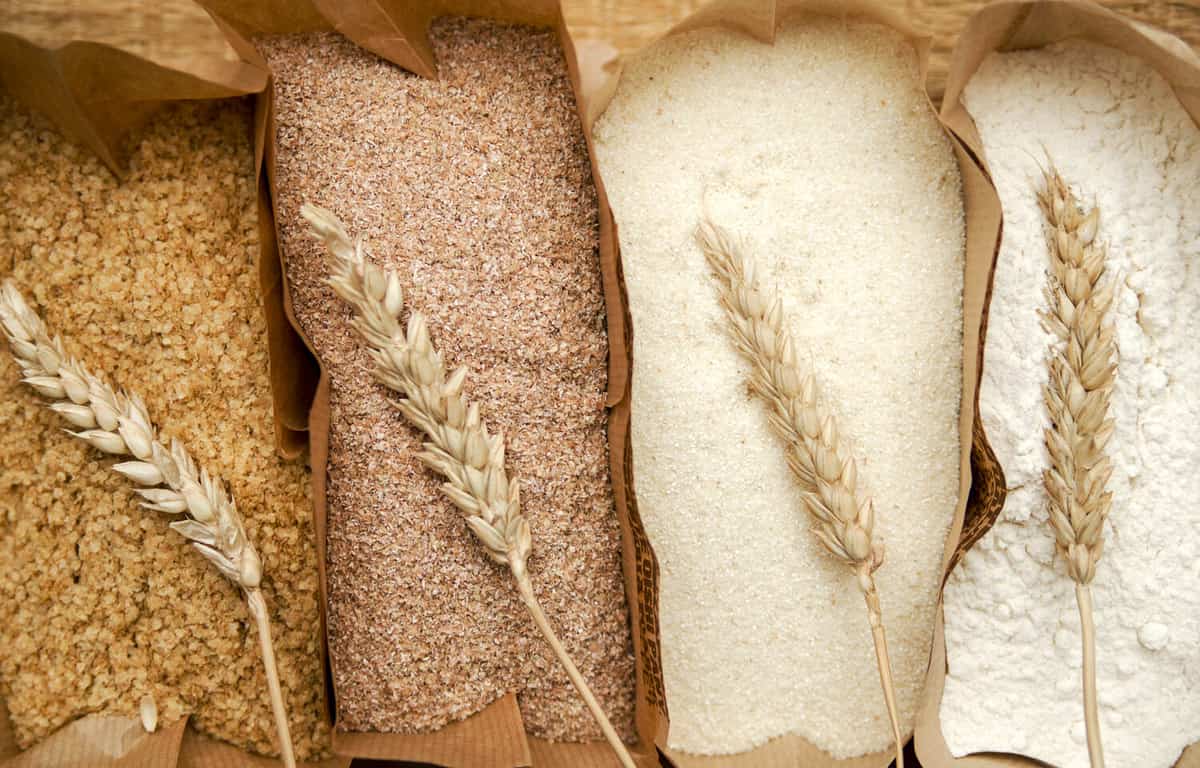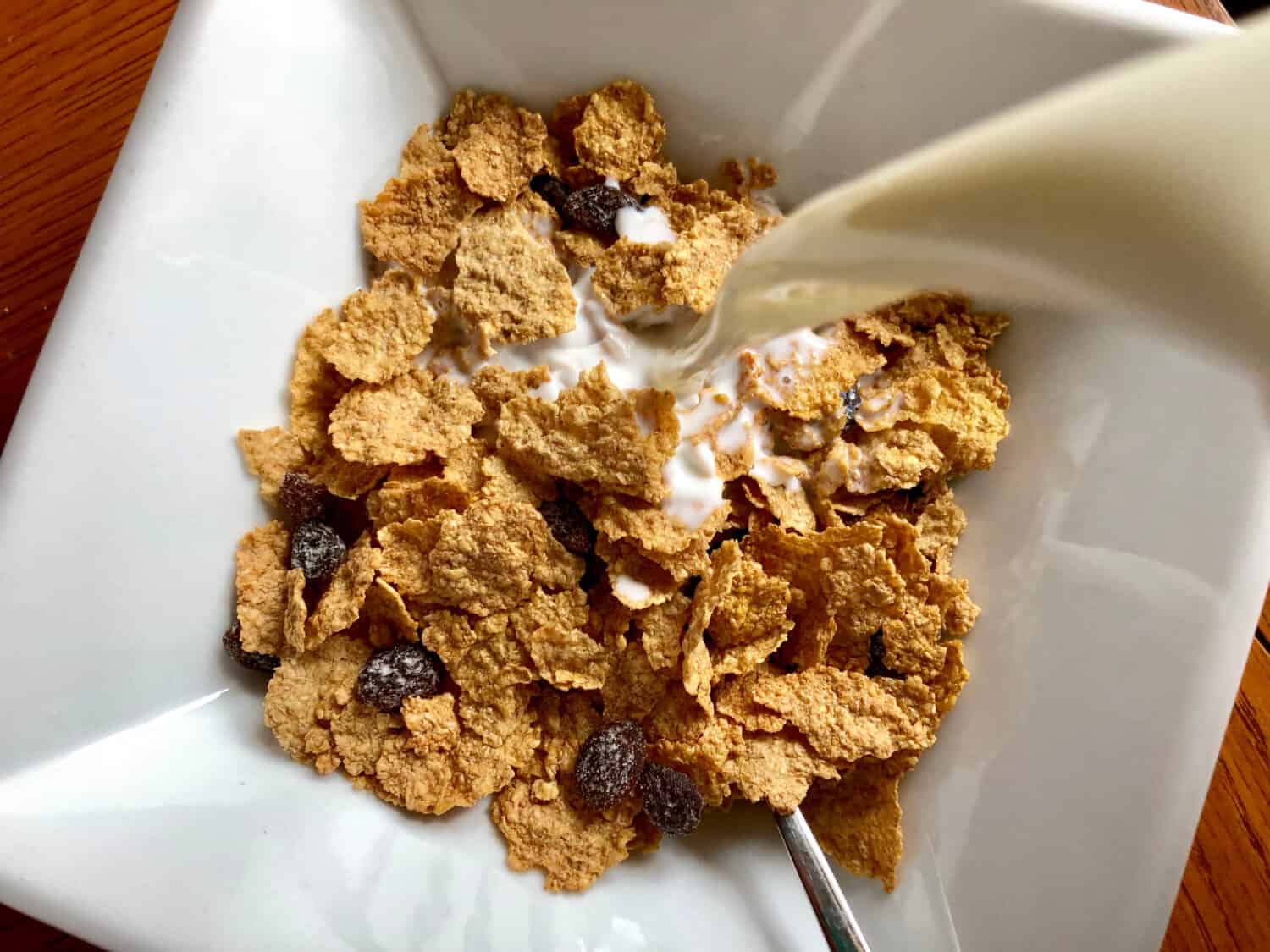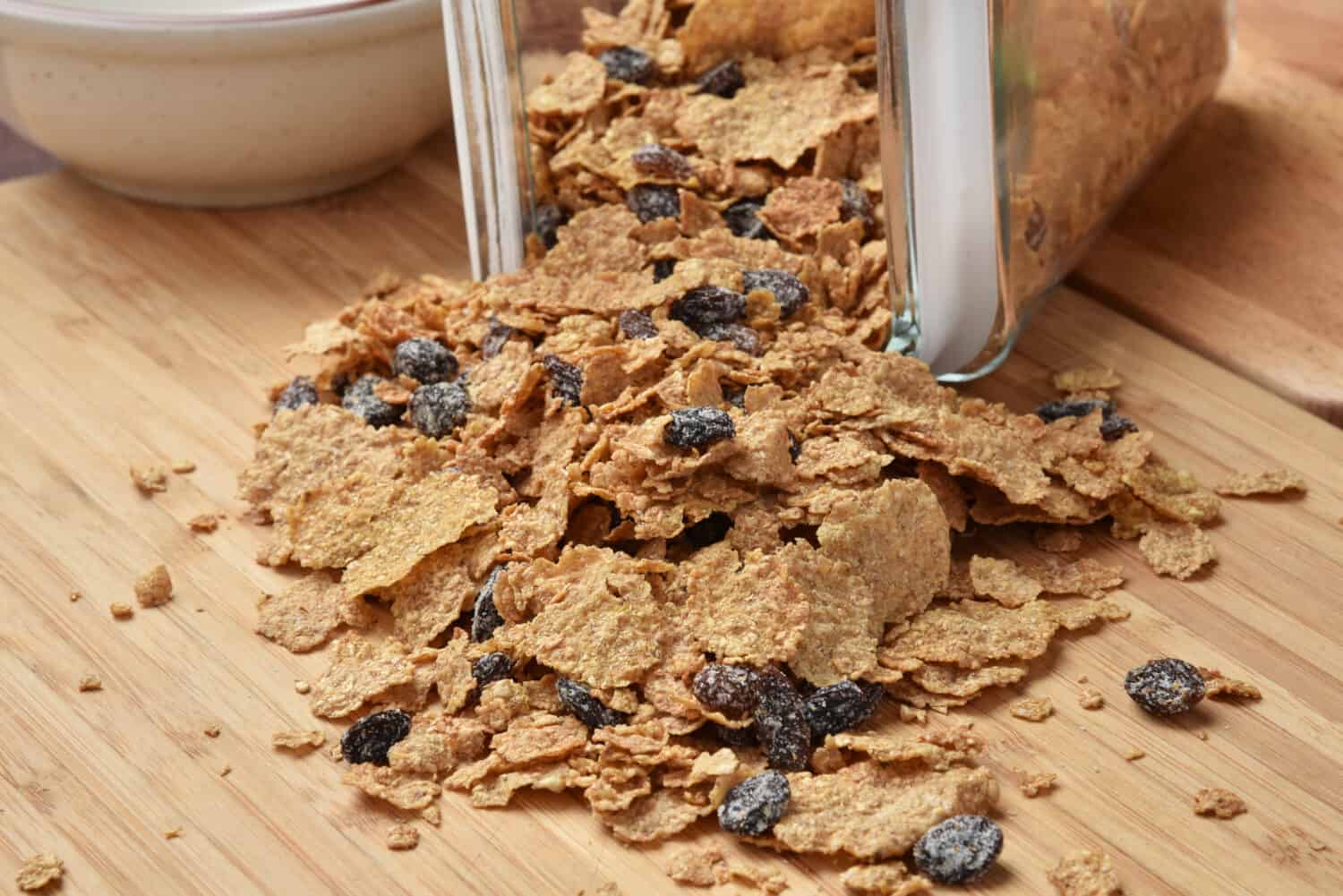Raisin Bran cereal has often been seen as a quick and healthy breakfast. Bran is a well-known ingredient that is highly nutritious and great for heart and digestive health. So then, Raisin Bran must be healthy for you, right? There is no specific research that shows direct health benefits from eating Raisin Bran, but according to its nutritional value, the benefits of the cereal do not outweigh the risks. Let's take a deeper look into its ingredients and nutritional facts and why it may or may not be a good option for you and your family.

Wheat bran contains vitamin B and manganese which can help boost your energy level.
©Pearl PhotoPix/Shutterstock.com
Ingredients & Nutritional Value
Although there are a handful of brands that make Raisin Bran cereal, they all share similar ingredients. Raisin Brain contains raisins, whole grain wheat, wheat bran, brown sugar syrup, and sugar. Each brand will be similar in nutritional value but mostly vary in the amount of supplemental vitamins and minerals added.
Raisin Bran is generally high in fiber due to its wheat and bran content. Having a food source high in fiber incorporated into your diet is important for your digestive health. It helps feed the good bacteria in your gut so that your digestive system can function well. Fiber can also help reduce blood sugar and cholesterol, which can be important if you're eating a meal high in carbohydrates.
Raisin Bran is often fortified with vitamins and minerals like vitamins A, C, D, and E, iron, and calcium. This is important because it doesn't naturally contain these nutrients, but it's an important part of our daily diet. A fortified cereal is a good and easy way to ensure you receive these macronutrients.

The first Raisin Bran introduced to the U.S. market was in 1926.
©Jmcanally/Shutterstock.com
Health Risks
Although wheat and bran can contribute to some positive health benefits, Raisin Brain has a high sugar and carbohydrate content which can have negative effects. Regarding heart health, the American Heart Association says sugar intake should be a maximum of 25 grams for women or 36 grams for men. According to the nutritional labels, Raisin Bran cereal has around 20 grams of sugar per serving, which is over half the suggested daily sugar intake. High sugar intake over time can lead to many health issues, including heart disease and diabetes.
What Is The Best Raisin Bran Brand?
Although overall, Raisin Bran is not the healthiest breakfast option, you can still eat it on occasion. If you're looking for the healthiest Raisin Bran, according to the nutritional charts between Kellogg's and General Mills, General Mills will offer a healthier Raisin Bran option. It contains fewer calories, fat, and carbs than Kellogg's as well as having a higher content of fortified vitamins and minerals.
The image featured at the top of this post is ©MSPhotographic/Shutterstock.com

